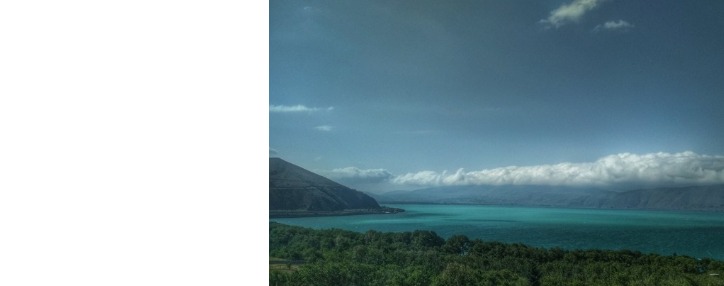Commercial fish farms cause the 'blooming' of Lake Sevan
31.07.2019,
18:12
The change in the chemical composition of water in Armenia's largest Lake Sevan and its "blooming" result from the rotting of the waste produced by commercial fish farms, whose waters flow into the lake, according to Artur Atoyan, the president of the Union of Armenian Fish Producers and Fish Exporters.

YEREVAN, July 31 /ARLA/. The change in the chemical composition of water in Armenia's largest Lake Sevan and its "blooming" result from the rotting of the waste produced by commercial fish farms, whose waters flow into the lake, according to Artur Atoyan, the president of the Union of Armenian Fish Producers and Fish Exporters.
Speaking at a news conference today he said there is also human waste products brought by sewage from coastal settlements, which also affects the composition of water.
Atoyan recalled that fish farm owners must clean artificial pools at least once a year, which is not done.
"There are clearly-cut standards for the cultivation of fish in artificial reservoirs, the violation of which not only leads to administrative consequences, but also affects the fish," he said.
According to him, the Ministry of the Environment turns a blind eye to violation of the requirements by fish farms, blaming the problem on water pollution only.
He said closing fish farms will affect the economic interests of many people. As an alternative, he suggested that those fish species be cultivated that help clean the algae and the coastal zone.
This fish is silver carp and grass carp, which cannot affect the local fauna, as they feed exclusively on algae and live near the coastline.
As for sewage waters and violations of safety standards by economic entities, according to Atoyan, it is necessary to introduce strict rules of punishment for neglecting environmental standards.
"All economic entities should feel their responsibility for the environment and not shy away from compliance with the norms established by the legislation, because of their negligence or sabotage the most important freshwater reservoir for Armenia can suffer," he concluded. –0-
Speaking at a news conference today he said there is also human waste products brought by sewage from coastal settlements, which also affects the composition of water.
Atoyan recalled that fish farm owners must clean artificial pools at least once a year, which is not done.
"There are clearly-cut standards for the cultivation of fish in artificial reservoirs, the violation of which not only leads to administrative consequences, but also affects the fish," he said.
According to him, the Ministry of the Environment turns a blind eye to violation of the requirements by fish farms, blaming the problem on water pollution only.
He said closing fish farms will affect the economic interests of many people. As an alternative, he suggested that those fish species be cultivated that help clean the algae and the coastal zone.
This fish is silver carp and grass carp, which cannot affect the local fauna, as they feed exclusively on algae and live near the coastline.
As for sewage waters and violations of safety standards by economic entities, according to Atoyan, it is necessary to introduce strict rules of punishment for neglecting environmental standards.
"All economic entities should feel their responsibility for the environment and not shy away from compliance with the norms established by the legislation, because of their negligence or sabotage the most important freshwater reservoir for Armenia can suffer," he concluded. –0-



